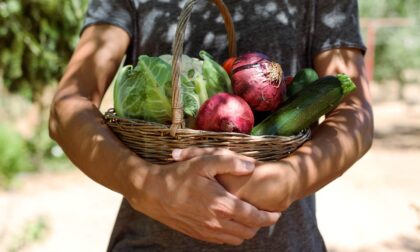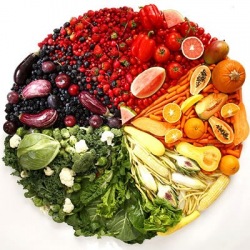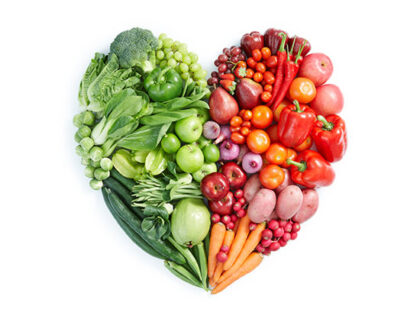
Description
Welcome to Food and Social Change
Course Information
Day/Time: Friday 11:45 – 2:30 PM
Office Hours: Friday 2:30 – 4:00 PM and Monday 5:45 – 7:00 PM (by request only)
Classroom: H 613 SGW
Weekly Lessons
Important Dates
Last day to register: Monday, January 23, 2023
Last day to withdraw (refund): Monday, January 23, 2023
Last day to discontinue (no refund): Tuesday, April 18, 2023
Last day of in-class testing: Thursday, April 6, 2023
Final exams: April 20- May 2, 2023
Territorial Acknowledgement
I acknowledge that Concordia University is located on unceded Indigenous lands. The Kanien’kehá:ka Nation is recognized as the custodians of the lands and waters on which we gather today. Tiohtiá:ke/Montreal is historically known as a gathering place for many First Nations. Today, it is home to a diverse population of Indigenous and other peoples. We respect the continued connections with the past, present and future in our ongoing relationships with Indigenous and other peoples within the Montreal community. (Indigenous Directions Leadership Group, Feb. 16, 2017)
Course Description from Undergraduate Calendar
This advanced course explores the links between socio‑cultural change and changes in food patterns, practices and ideologies, from theoretical and ethnographic perspectives. Topics may include the relationships of food changes to technology, migration, everyday life, taste, ethics and globalization.
Learning Outcomes
By the end of the course, students should be able to…
- Recount the history of global food systems
- Analyze food regimes to understand global food system changes
- Apply critical food systems thinking to address local and global food issues
- Incorporate social justice and decolonial perspectives into present and future food system planning
- Identify social, economic and environmental problems with global and local food systems
- Provide real-world examples of successful food movements
- Critically analyze power and privilege in global and local food systems
- Understand the ‘value’ of food in relation to agricultural labour
- Use transformative approaches to build sustainable food systems
- Design, implement and/or understand ways to feed cities
- Describe food sovereignty frameworks
- Differentiate between corporate, reformist, food justice, and food sovereignty orientations to food activism
- Define food sovereignty, food security, food justice, and transformative sustainability
- Practice community-campus engagement to improve local foodscapes
- Take a systems approach to social change
- Understand all parts of a food system
- Generate new positive community ‘values’
- Understand collective/cooperative food movements
- Apply a social economy approach to food system transformation
Required Course Materials
Students are required to complete the weekly readings before coming to class. All the books and articles have been reserved (or requested to be reserved) as an e-copy to be available online at the Concordia Library. In some cases, the books are only available in hard copy and must be obtained from the Concordia Library in person. In other cases, the Concordia Library is still processing the e-version, which should be available to students shortly. The required readings are listed below in the course schedule.
Course Content
Course Schedule | |||
Week | Date | Description | Readings Due |
1 | January 13 | Introduction to Food and Social Change | No Readings |
2 | January 20 | Building Food Sovereignty Through Community-Campus Engagement | Andrée, P., Kepkiewicz, L., Levkoe, C., Brynne, A., Kneen, C. (2016). Learning, Food, and Sustainability in Community-Campus Engagement: Teaching and Research Partnerships That Strengthen the Food Sovereignty Movement. In: Sumner, J. (eds) Learning, Food, and Sustainability. Palgrave Macmillan, New York.
Levkoe, Charles & Andree, Peter & Bhatt, Vikram & Brynne, Abra & Davison, Karen & Kneen, Cathleen & Nelson, Erin. (2016). Collaboration for Transformation: Community– Campus Engagement for Just and Sustainable Food Systems. Journal of Higher Education Outreach & Engagement, 20,3. |
3 | January 27 | Building Food Sovereignty Through Community-Campus Engagement | Chapter 2 – Changing Food Systems from Top to Bottom: Political Economy and Social Movements Perspective Kepkiewicz, L., Levkoe, C. Z., Brynne, A. (2018) “Community First” for Whom? Reflections on the Possibilities and Challenges of Community-Campus Engagement from the Community Food Sovereignty Hub, Engaged Scholar Journal: Community-Engaged Research, Teaching and Learning, 4, 2.
|
4 | February 3 | What’s Wrong with Global Food Systems? | Introduction – Do Foodie’s Really Need to Understand Capitalism? Chapter 1 – How Our Capitalist Food System Came to Be (or) Introduction – The Law and Politics of Food Sovereignty Chapter 1 – Translocal Transnational and the Practice of Networks |
5 | February 10 | Food, Commodities and Value | Chapter 2 – Food, A Special Commodity Chapter 3 – Land and Property (or) Chapter 2 – Constructing and Contesting “Local” Food Governance Chapter 3 – Revaluing Agricultural Labour |
6 | February 17 | Decolonizing Food | Koc, M., Sumner, J., Winson, A. (2022) Critical Perspectives in Food Studies, Third Edition, Oxford. Chapter 4 – Evolving Understandings of Traditional Foods. Integrating Individual Knowledge and Community Practice
|
7 | February 24 | Food Power and Privilege | Chapter 4 – Capitalism, Food and Agriculture Chapter 5 – Power and Privilege in the Food System
(or) Chapter 4 – Protecting People’s Knowledge Chapter 5 – Democratizing Global Food Governance |
| March 3 | Reading Week – no classes |
|
8 | March 10 | Food Crises and Solutions | Chapter 6 – Food, Capitalism, Crises and Solutions Conclusion – Challenging Everything: Food, Capitalism, and the Challenges of Our Time (or) Conclusion – Cultivating Justice in an Age of Transnational Governance |
9 | March 17 | Community Food Sovereignty | Chapter 22 – Actualizing Sustainable Food Systems Chapter 24 – Building Food Sovereignty: A Radical Framework for Alternative Food Systems |
10 | March 24 | Feeding Cities |
|
11 | March 31 | Food Policy | Koc, M., Sumner, J., Winson, A. (2022) Critical Perspectives in Food Studies, Third Edition, Oxford University Press
|
| April 7 | Easter Holidays, University Closed |
|
12 | April 14 | Collective/Cooperative Food Movements | Alkon, A. (2017) The New Food Activism: Opposition, Cooperation, and Collective Action (Read two of the following chapters) Chapter 8 – Collective Purchase: Food Cooperatives and Their Pursuit of Justice Chapter 9 – Cooperative Social Practices, Self-Determination, and the Struggle for Food Justice in Oakland and Chicago Chapter 10 – Urban Agriculture, Food Justice, and Neoliberal Urbanization: Rebuilding the Institution of Property Chapter 11 – Boston’s Emerging Food Solidarity Economy |
13 | April 18 | Course Wrap-Up | No Readings |
Assignments
Participation: The participation grade is based on attendance, involvement in discussions, participation in classroom activities and supplemental tasks. Students must not only attend the course, but they must demonstrate that they have completed the course readings.
Seminar: Beginning on February 3rd, students will lead a seminar by reading the required material, preparing a presentation based on the weekly seminar questions, and facilitating a discussion. Two students will present per class for 45-minutes each. Students are permitted to deviate from the discussion questions if they get approval from Erik Chevrier, Ph.D., in advance. Students will be evaluated on their ability to identify the central claim(s) or thesis(es) of the texts and articulate it (them) in their own words, synthesize the readings in a clear, informative manner, answer one of the weekly seminar questions, lead a discussion about the readings and provide examples and/or case studies that support or contradict the arguments put forth in the chapter(s) they are presenting. Students must also submit a paper copy of their presentation and/or PowerPoint slides.
Community-Campus Engagement Project Proposal: Students will write a proposal for the community-campus engagement project they want to partake in. Students must submit the proposal as a group. Students must (1) identify a group project (2) describe the project (3) outline a specific timeline for the project, (4) summarize the roles of each group member, (5) link the topic to class readings and other issues related to food and social change.
Community-Campus Engagement Project Final Report: The goal of this assignment is to provide students with experiential-learning opportunities in food activism and to create conditions of food security, sovereignty and/or justice in the community at large. The projects will be discussed and decided upon by February 3rd.
Students will be evaluated based on the depth of their involvement with the project, their deliverables, clearly reporting their contribution to the project, an oral presentation summarizing their role in the project, and linking the project to the course material.
Interview: Students will interview a community food activist and write a summary of the discussion. Students will ask food activists about their motivation for getting involved, social values about food, types of activism they are involved with, what problems they are addressing, and/or how they are trying to solve these problems. Students should also ask participants about lessons learned and get advice about food activism. They should also relate the interview to the course readings via the introduction and conclusion of the report.
Grading System
A+ | 95 – 100 | B+ | 80 – 84.9 | C+ | 67 – 69.9 | D+ | 57 – 59.9 | F | 0 – 49 |
A | 90 – 94.9 | B | 75 – 79.9 | C | 63 – 66.9 | D | 53 – 56.9 | NR | No report |
A- | 85 – 89.9 | B- | 70 – 74.9 | C- | 60 – 62.9 | D- | 50 – 52.9 |
|
|
Extraordinary Circumstances
In the event of extraordinary circumstances and pursuant to the Academic Regulations, the University may modify the delivery, content, structure, forum, location and/or evaluation scheme. In the event of such extraordinary circumstances, students will be informed of the changes.
Class Cancellation
Classes are officially considered cancelled if an instructor is 15 minutes late for a 50-minute class, 20 minutes late for a 75-minute class, or 30 minutes late for longer classes.
Intellectual Property
Content belonging to instructors shared in online courses, including, but not limited to, online lectures, course notes, and video recordings of classes remain the intellectual property of the faculty member. It may not be distributed, published or broadcast, in whole or in part, without the express permission of the faculty member. Students are also forbidden to use their own means of recording any elements of an online class or lecture without express permission of the instructor. Any unauthorized sharing of course content may constitute a breach of the Academic Code of Conduct and/or the Code of Rights and Responsibilities. As specified in the Policy on Intellectual Property, the University does not claim any ownership of or interest in any student IP. All university members retain copyright over their work.
Behaviour
All individuals participating in courses are expected to be professional and constructive throughout the course, including in their communications. Concordia students are subject to the Code of Rights and Responsibilitieswhich applies both when students are physically and virtually engaged in any University activity, including classes, seminars, meetings, etc. Students engaged in University activities must respect this Code when engaging with any members of the Concordia community, including faculty, staff, and students, whether such interactions are verbal or in writing, face to face or online/virtual. Failing to comply with the Code may result in charges and sanctions, as outlined in the Code.
Late Assignment and Submission Policy
Unless you are given permission in advance, late assignments will not be accepted without adequate documentation of medical or personal emergencies. All assignments must be submitted in hard copy on the due date. Assignments that are received electronically will have 30% deducted from the grade of the assignment.
Academic Integrity
Academic integrity means that every student must be honest and accurate in their work. The Academic Code of Conduct includes rules and regulations students must follow. Unacceptable practices include the following
- Copy from ANYWHERE without saying from where it came.
- Omit quotation marks for direct quotations.
- Let another student copy your work and then submit it as his/her own.
- Hand in the same assignment in more than one class without permission.
- Have unauthorized material in an exam, such as cheat sheets, or crib notes. YOU DON’T HAVE TO BE CAUGHT USING THEM – JUST HAVING THEM WILL GET YOU INTO TROUBLE!
- Copy from someone else’s exam.
- Communicate with another student during an exam by talking or using some form of signals.
- Add or remove pages from an examination booklet or take the booklet out of an exam room.
- Get hold of or steal an exam or assignment answers or questions.
- Write a test or exam for someone else or have someone write it for you.
- Hand in false documents such as medical notes, transcript or record.
- Falsify data or research results.
PLAGIARISM: The most common offense under the Academic Code of Conduct (see link below) is plagiarism, which the Code defines as “the presentation of the work of another person as one’s own or without proper acknowledgement.”
This could be material copied word for word from books, journals, internet sites, professor’s course notes, etc. It could be material that is paraphrased but closely resembles the original source. It could be the work of a fellow student, such as an answer on a quiz, data for a lab report, or a paper or assignment completed by another student. It could be a paper purchased through one of the many available sources. Plagiarism does not refer to words alone. It can also refer to copying images, graphs, tables, and ideas. Plagiarism is not limited to written work. It also applies to oral presentations, computer assignments and artistic works. Finally, if you translate the work of another person into French or English and do not cite the source, this is also plagiarism. In simple words: DO NOT COPY, PARAPHRASE OR TRANSLATE ANYTHING FROM ANYWHERE WITHOUT SAYING FROM WHERE YOU OBTAINED IT!
Take care to inform yourself of the rules, regulations and expectations for academic integrity.
List of Student Services
Academic Code of Conduct
Academic Integrity
Access Centre for Students with Disabilities (ACSD)
Advocacy and Support Services
Campus Services
Conduct on Campus
Counselling & Psychological Services
Dean of Students Office
Financial Aid & Awards Office
HOJO (Off Campus Housing & Jobs)
International Students’ Office
Library Services
Library Citation and Style Guides
Ombuds Office
Otsenhákta Student Centre
Safety and Security
Sexual Assault Resource Centre
Student Academic Services
Student Health Services
Student Hub
Student Success Center




